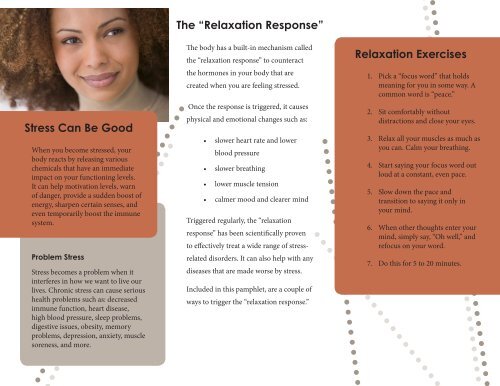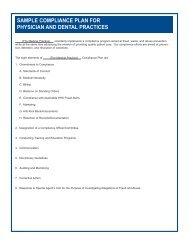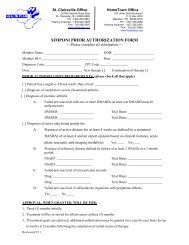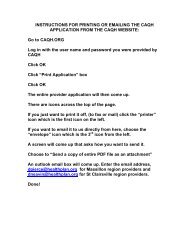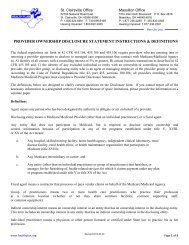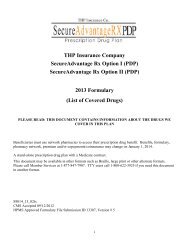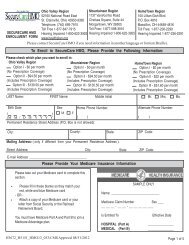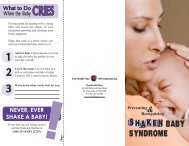Coping Skills for Stress, Anxiety and Depression - The Health Plan
Coping Skills for Stress, Anxiety and Depression - The Health Plan
Coping Skills for Stress, Anxiety and Depression - The Health Plan
You also want an ePaper? Increase the reach of your titles
YUMPU automatically turns print PDFs into web optimized ePapers that Google loves.
<strong>The</strong> “Relaxation Response”<br />
<strong>Stress</strong> Can Be Good<br />
When you become stressed, your<br />
body reacts by releasing various<br />
chemicals that have an immediate<br />
impact on your functioning levels.<br />
It can help motivation levels, warn<br />
of danger, provide a sudden boost of<br />
energy, sharpen certain senses, <strong>and</strong><br />
even temporarily boost the immune<br />
system.<br />
Problem <strong>Stress</strong><br />
<strong>Stress</strong> becomes a problem when it<br />
interferes in how we want to live our<br />
lives. Chronic stress can cause serious<br />
health problems such as: decreased<br />
immune function, heart disease,<br />
high blood pressure, sleep problems,<br />
digestive issues, obesity, memory<br />
problems, depression, anxiety, muscle<br />
soreness, <strong>and</strong> more.<br />
<strong>The</strong> body has a built-in mechanism called<br />
the “relaxation response” to counteract<br />
the hormones in your body that are<br />
created when you are feeling stressed.<br />
Once the response is triggered, it causes<br />
physical <strong>and</strong> emotional changes such as:<br />
• slower heart rate <strong>and</strong> lower<br />
blood pressure<br />
• slower breathing<br />
• lower muscle tension<br />
• calmer mood <strong>and</strong> clearer mind<br />
Triggered regularly, the “relaxation<br />
response” has been scientifically proven<br />
to effectively treat a wide range of stressrelated<br />
disorders. It can also help with any<br />
diseases that are made worse by stress.<br />
Included in this pamphlet, are a couple of<br />
ways to trigger the “relaxation response.”<br />
Relaxation Exercises<br />
1. Pick a “focus word” that holds<br />
meaning <strong>for</strong> you in some way. A<br />
common word is “peace.”<br />
2. Sit com<strong>for</strong>tably without<br />
distractions <strong>and</strong> close your eyes.<br />
3. Relax all your muscles as much as<br />
you can. Calm your breathing.<br />
4. Start saying your focus word out<br />
loud at a constant, even pace.<br />
5. Slow down the pace <strong>and</strong><br />
transition to saying it only in<br />
your mind.<br />
6. When other thoughts enter your<br />
mind, simply say, “Oh well,” <strong>and</strong><br />
refocus on your word.<br />
7. Do this <strong>for</strong> 5 to 20 minutes.


